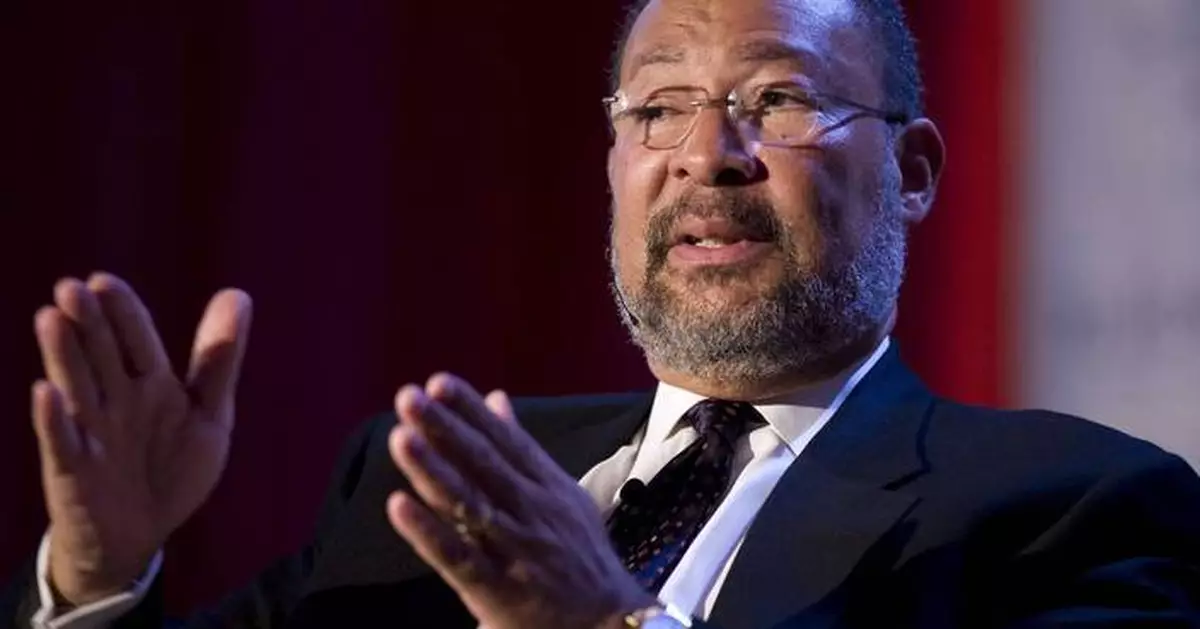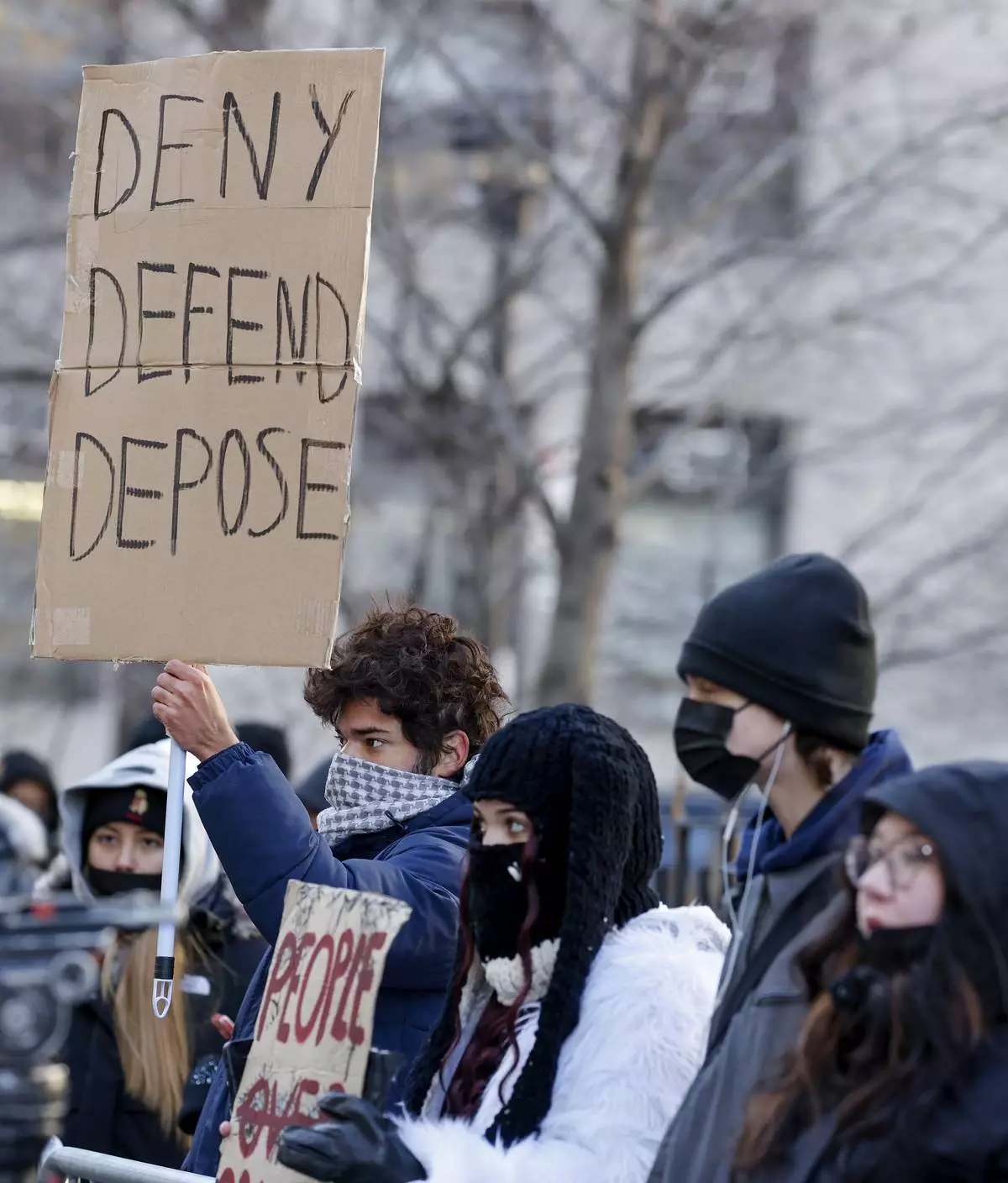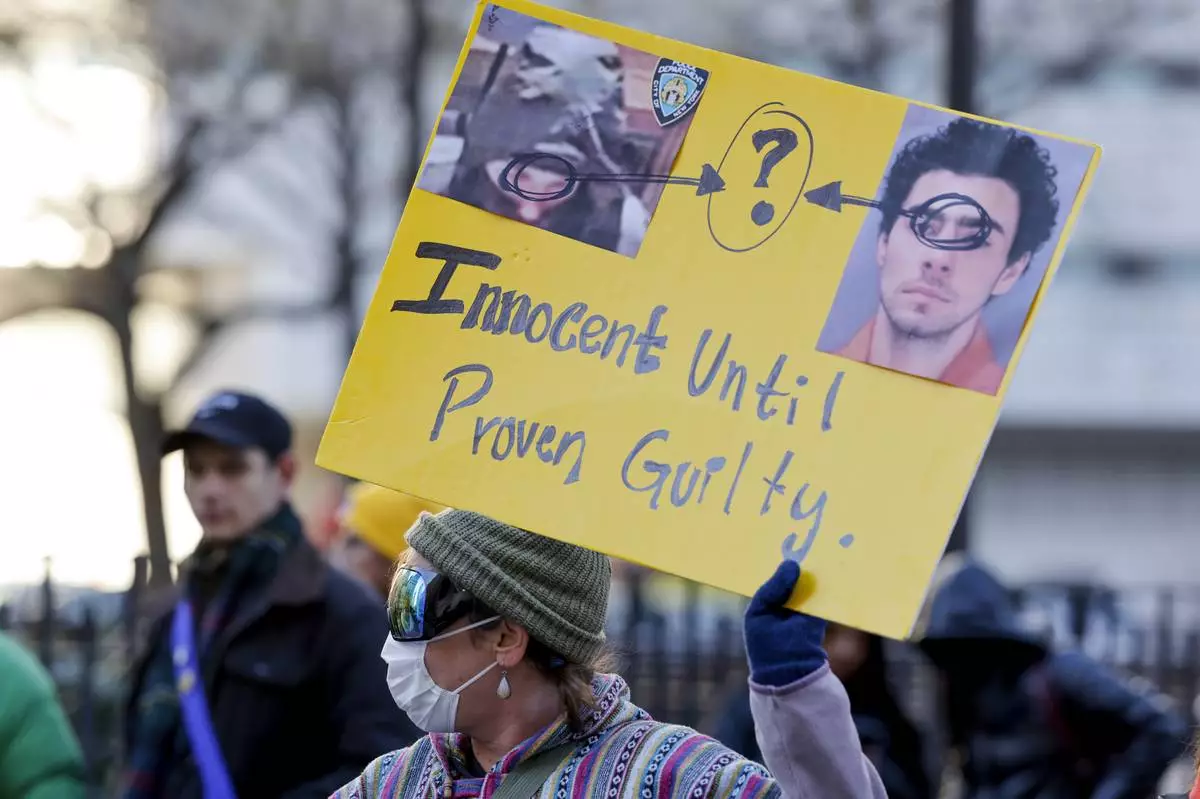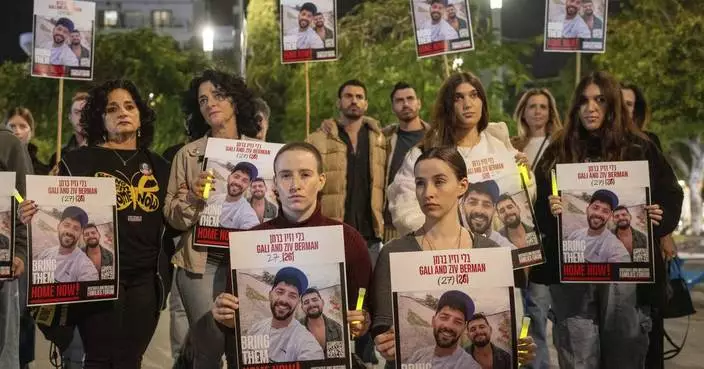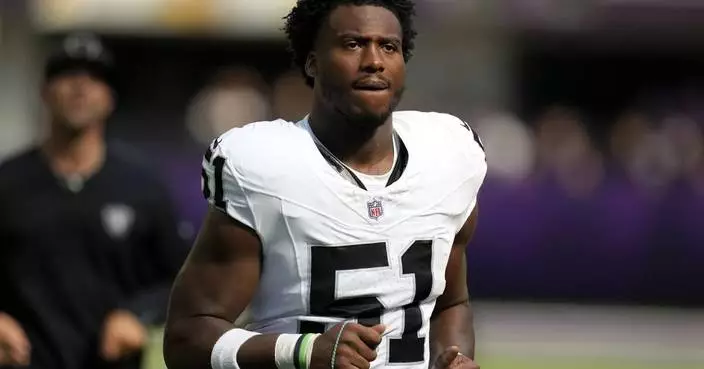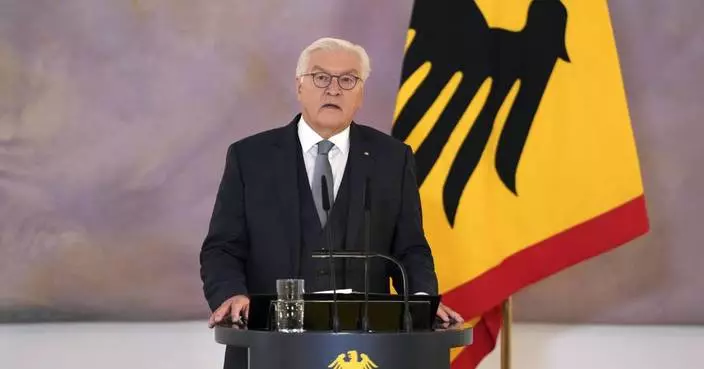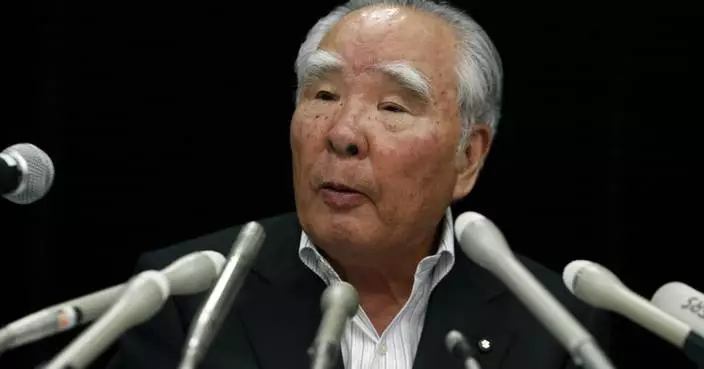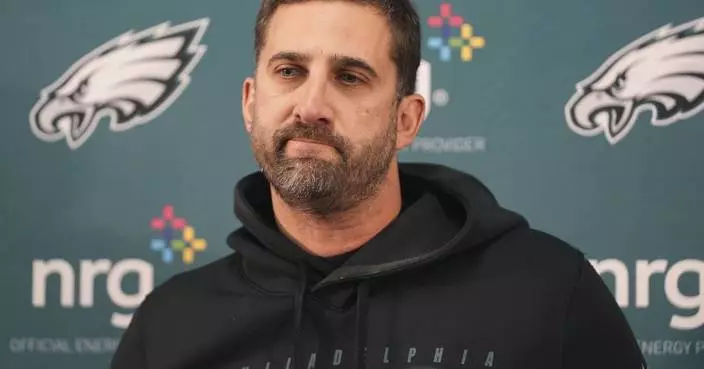NEW YORK (AP) — Richard Parsons, one of corporate America's most prominent Black executives who held top posts at Time Warner and Citigroup, died Thursday. He was 76.
Parsons, who died at his Manhattan home, was diagnosed with multiple myeloma in 2015 and cited “unanticipated complications” from the disease for cutting back on work a few years later.
The financial services company Lazard, where Parsons was a longtime board member, confirmed his death.
Parsons’ friend Ronald Lauder told The New York Times that the cause of death was cancer.
Parsons stepped down Dec. 3 from the boards of Lazard and Lauder’s company, Estée Lauder, citing health reasons. He had been on Estée Lauder’s board for 25 years.
“Dick was an American original, a colossus bestriding the worlds of business, media, culture, philanthropy, and beyond,” Ronald Lauder said in a statement on behalf of the Lauder family.
David Zaslav, the CEO of Time Warner successor Warner Bros. Discovery, hailed Parsons as a “great mentor and friend” and a “tough and brilliant negotiator, always looking to create something where both sides win.”
“All who got a chance to work with him and know him saw that unusual combination of great leadership with integrity and kindness,” Zaslav said, calling him “one of the great problem solvers this industry has ever seen.”
Parsons, a Brooklyn native who started college at 16, built a track record of steering big companies through tough times.
He returned Citigroup to profitability after turmoil from the global financial crisis and helped restore Time Warner after its much-maligned acquisition by internet provider America Online.
Parsons was named to the board of CBS in September 2018 but resigned a month later because of illness.
Parsons said in a statement at the time that he was already dealing with multiple myeloma when he joined the board, but “unanticipated complications have created additional new challenges.” He said his doctors advised him to cut back on his commitments to ensure recovery.
“Dick’s storied career embodied the finest traditions of American business leadership,” Lazard said in a statement. The company, where Parsons was a board member from 2012 until this month, praised his “unmistakable intelligence and his irresistible warmth.”
“Dick was more than an iconic leader in Lazard’s history — he was a testament to how wisdom, warmth, and unwavering judgment could shape not just companies, but people’s lives,” the company said. “His legacy lives on in the countless leaders he counseled, the institutions he renewed, and the doors he opened for others.”
Parsons was known as a skilled negotiator, a diplomat and a crisis manager.
Although he was with Time Warner through its difficulties with AOL, he earned respect for the company and rebuilt its relations with Wall Street. He streamlined Time Warner’s structure, pared debt and sold Warner Music Group and a book publishing division.
He also fended off a challenge from activist investor Carl Icahn in 2006 to break up the company and helped Time Warner reach settlements with investors and regulators over questionable accounting practices at AOL.
Parsons joined Time Warner as president in 1995 after serving as chairman and chief executive of Dime Bancorp Inc., one of the largest U.S. thrift institutions.
In 2001, after AOL used its fortunes as the leading provider of Internet access in the U.S. to buy Time Warner for $106 billion in stock, Parsons became co-chief operating officer with AOL executive Robert Pittman. In that role, he was in charge of the company’s content businesses, including movie studios and recorded music.
He became CEO in 2002 with the retirement of Gerald Levin, one of the key architects of that merger. Parsons was named Time Warner chairman the following year, replacing AOL founder Steve Case, who had also championed the combination.
The newly formed company’s Internet division quickly became a drag on Time Warner. The promised synergies between traditional and new media never materialized. AOL began seeing a reduction in subscribers in 2002 as Americans replaced dial-up connections with broadband from cable TV and phone companies.
Parsons stepped down as CEO in 2007 and as chairman in 2008. A year later AOL split from Time Warner and began trading as a separate company, following years of struggles to reinvent itself as a business focused on advertising and content. Time Warner is now owned by AT&T Inc.
A board member of Citigroup and its predecessor, Citibank, since 1996, Parsons was named chairman in 2009 at a time of turmoil for the financial institution. Citigroup had suffered five straight quarters of losses and received $45 billion in government aid. Its board had been criticized for allowing the bank to invest so heavily in the risky housing market.
Citigroup returned to profit under Parsons, starting in 2010, and would not have a quarterly loss again until the fourth quarter of 2017. Parsons retired from that job in 2012.
In 2014 he stepped in as interim CEO of the NBA's Los Angeles Clippers until Microsoft CEO Steve Ballmer took over later that year.
“Dick Parsons was a brilliant and transformational leader and a giant of the media industry who led with integrity and never shied away from a challenge,” NBA Commissioner Adam Silver said.
Parsons, a Republican, previously worked as a lawyer for Nelson Rockefeller, a former Republican governor of New York, and in Gerald Ford’s White House. Those early stints gave him grounding in politics and negotiations. He also was an economic adviser on President Barack Obama’s transition team.
Parsons, whose love of jazz led to co-owning a Harlem jazz club, also served as Chairman of the Apollo Theater and the Jazz Foundation of America. And he held positions on the boards of the Smithsonian National Museum of African American History and Culture, the American Museum of Natural History and the Museum of Modern Art in New York City.
Parsons played basketball at the University of Hawaii at Manoa and received his law degree from Albany Law School in 1971. He is survived by his wife, Laura, and their family.
This obituary was primarily written by the late Associated Press reporter Anick Jesdanun, who died in 2020.
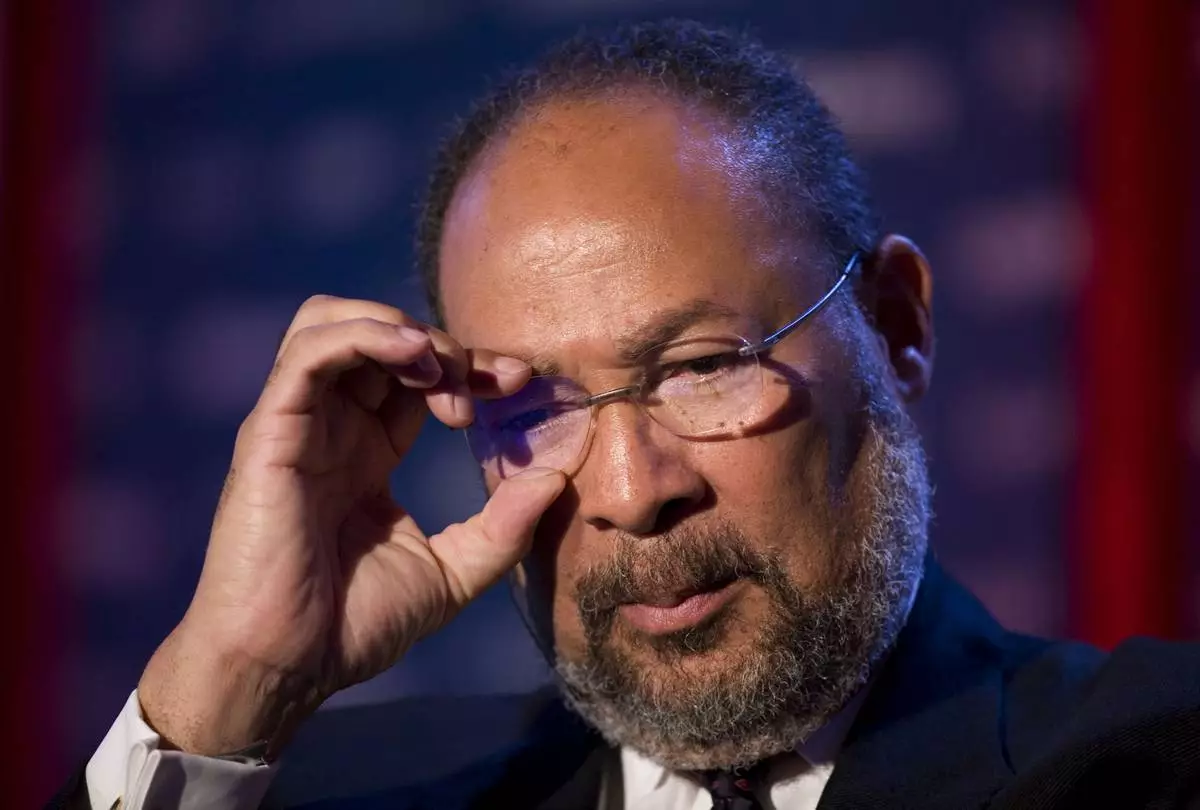
FILE - Richard Parsons, Chairman of Citigroup, speaks at Time Warner's headquarters Monday, June 15, 2009 in New York. (AP Photo/Mark Lennihan, File)
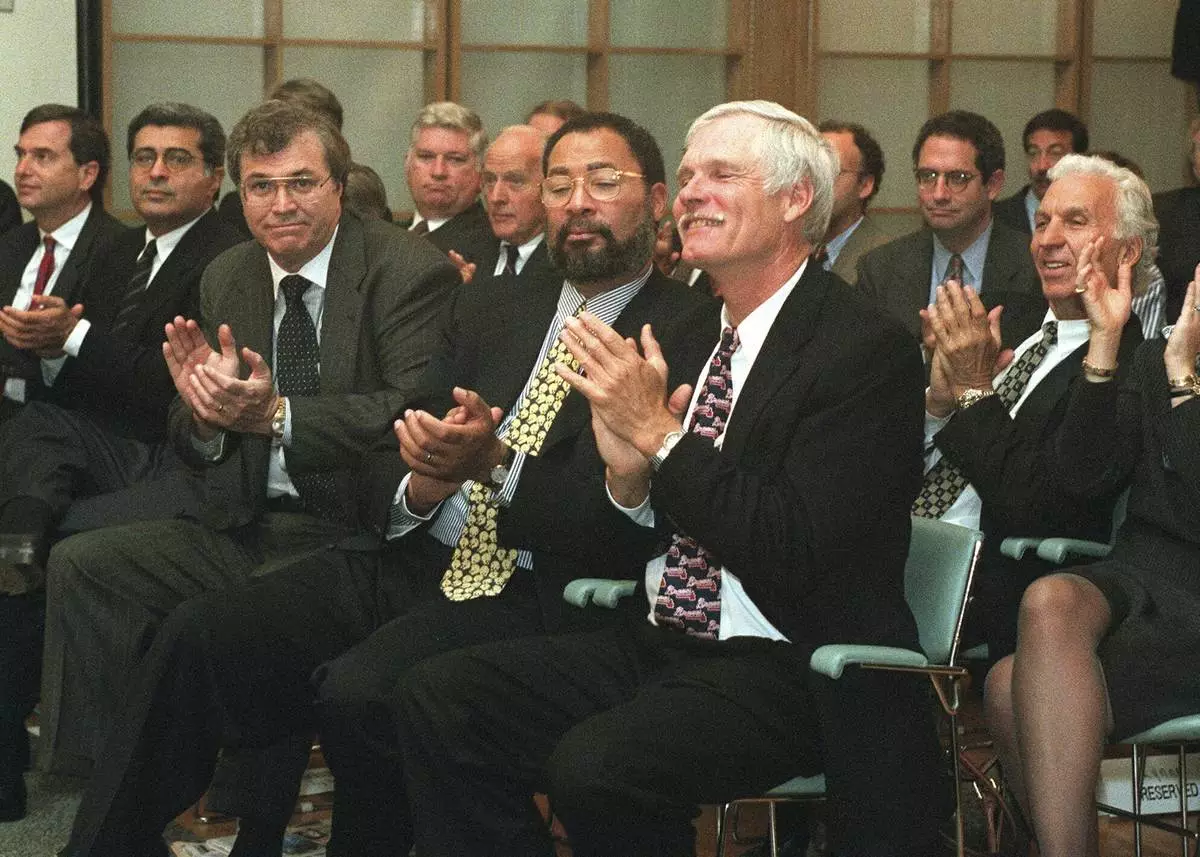
FILE - Turner Broadcasting Systems Chairman & CEO Ted Turner, right foreground, and Richard Parsons, Time Warner president, to Turner's right, applaud the outcome of the Time Warner shareholders' vote, in New York, Thursday, Oct. 10, 1996. (AP Photo/Marty Lederhandler, File)
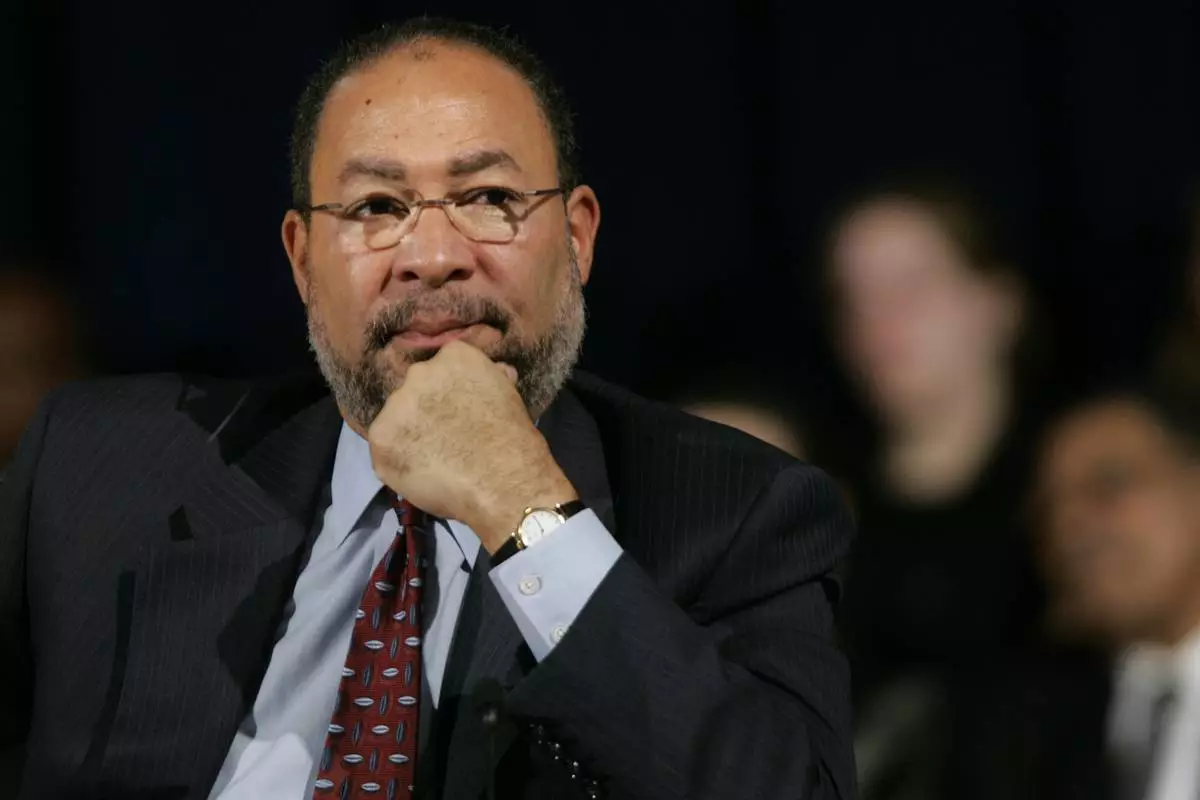
FILE - Time Warner CEO, Richard D. Parsons, participates in the White House Conference on the Economy: Financial Challenges for Today and Tomorrow, Thursday, Dec. 16, 2004, at the Ronald Reagan Building in Washington. (AP Photo/Lawrence Jackson, File)
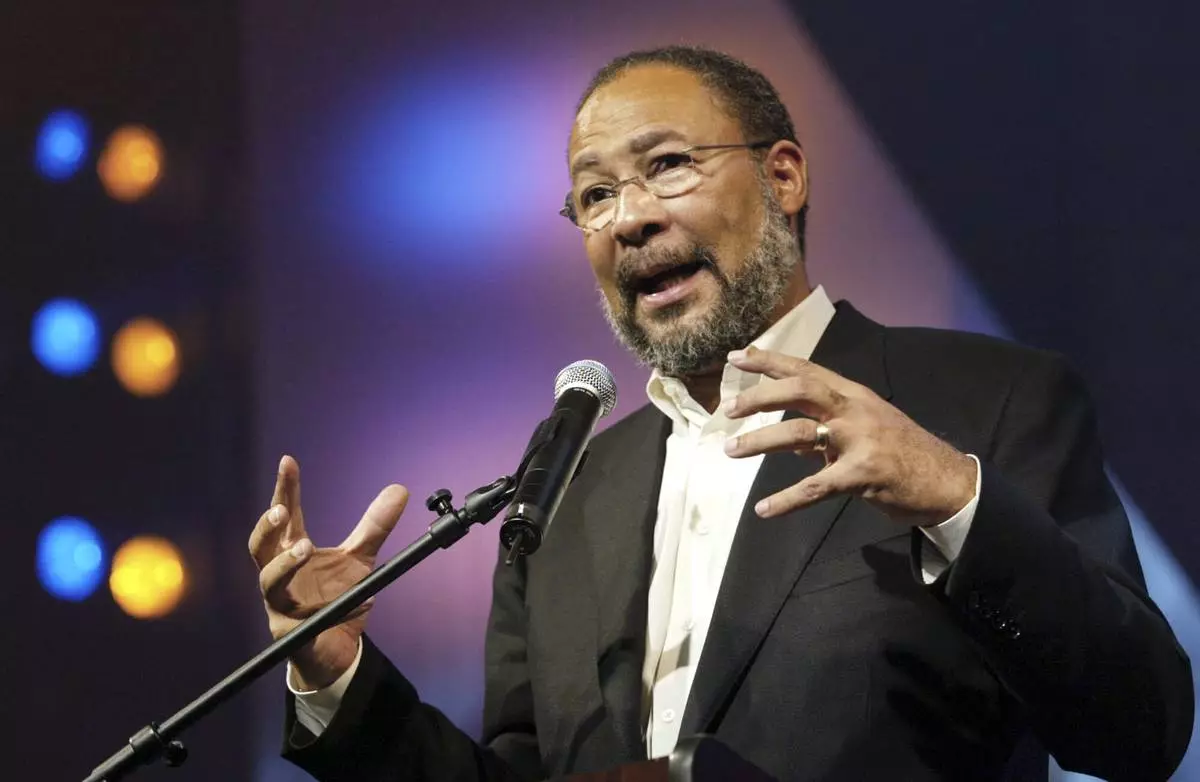
FILE - AOL/Time Warner CEO Dick Parsons helps announce a new partnership to produce "Showtime at the Apollo" variety show Wednesday, Aug. 21, 2002, in New York's Harlem neighborhood. (AP Photo/Beth A. Keiser, File)
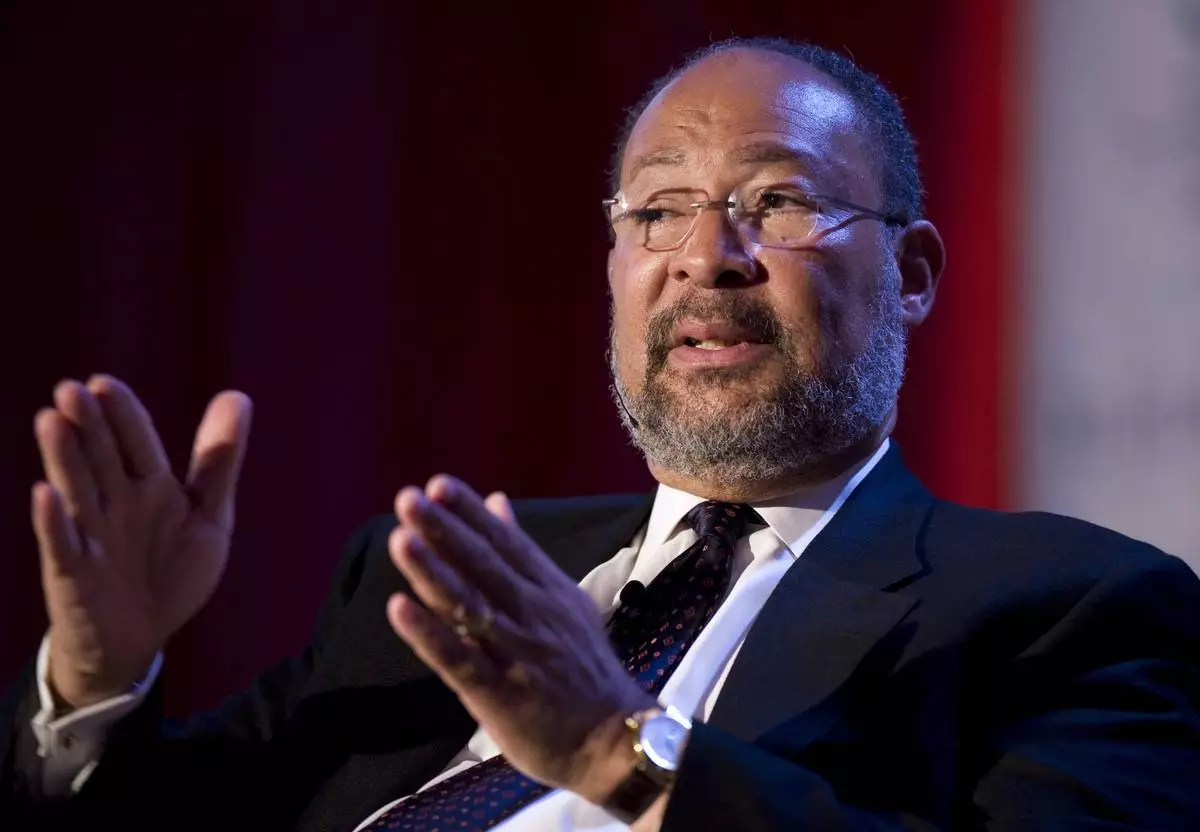
FILE - Richard Parsons, Chairman of Citigroup, speaks at Time Warner's headquarters Monday, June 15, 2009 in New York. (AP Photo/Mark Lennihan, File)


